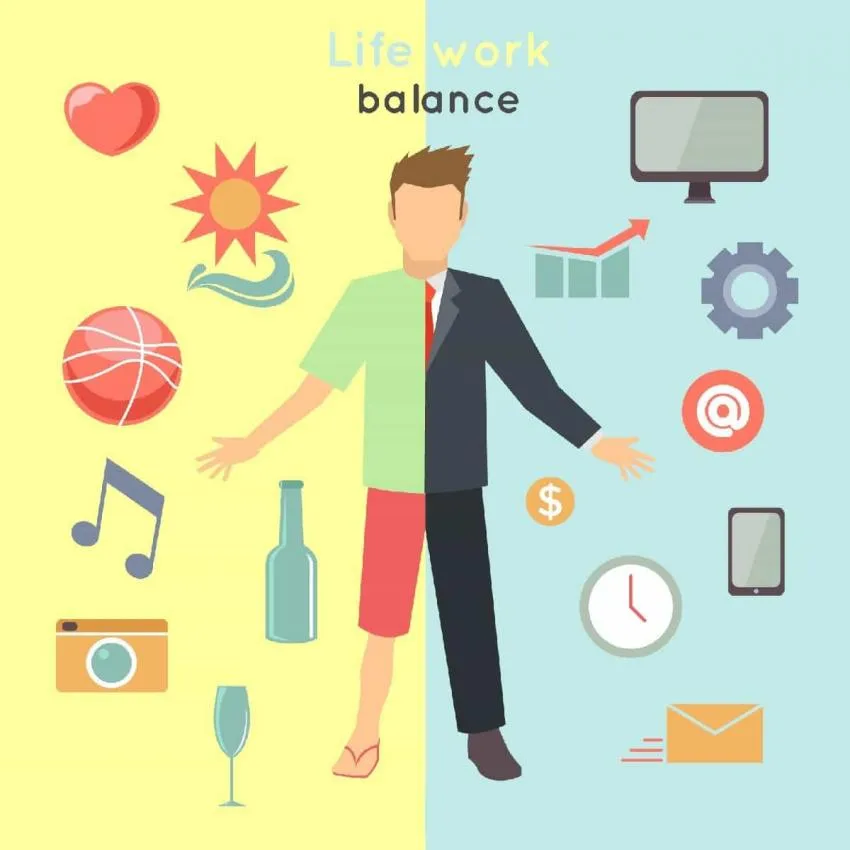10 Reasons Why Graduates Change Careers After Graduation
A career gives you a sense of completeness in the economic world. You are proud to identify yourself with a field like software engineering, and it gets more meaningful when you are an expert.
Many times you meet with a person and ask, "What do you do for a living?"
A simple question about what you do for a living asks for a good profession, which makes you a living. If you are like me, a diligent and social person, you answer the question with a sense of ego and explain your area of expertise and career.
As a graduate, you wonder what area in your career is worth investing your time and resources in. A good strategy would involve identifying your strengths, then mapping with interests in the given field of study. Once you are in and convinced it is what you want, sharpen your skills to become competitive.
Confused about what to do after graduation.

As a fact, many graduates wonder what to do next after graduation. If you meet a recent graduate, they seem occupied trying to figure out what to do next.
However, figuring out what to do next after graduation is not so hard; think of this; you have been studying a course for four years or even more, what would you want to do with the knowledge acquired?
As an illustration, here are options to jog your mind,
- Take a close related course to become diversified.
- Specialize in your field.
- Go out into the job market and apply it?
- Start a business
- Get back to school and pursue a master's degree.
However, figuring out what you want to require personal understanding lest you feel frustrated. In such a case, please go out and watch a movie; the answers will come up when you least expect them.
After graduation, take your time out. Travel to a place you have always dreamt of and experience the freedom of accomplishment. Connect with yourself and nature. Get to spend time with the people you care about in life, family, spouse. It is also helpful to identify your passions and invest in them.
Socialize with new people and, if possible, engage in volunteer opportunities. The plan is to experience as much, learn and blend with the new world.
Deciding to get back into a career path.
After graduation and all the merry moments, it is time to resume the work industry. You need to pick from where you left. Whether to start sending job applications or get back to school and pursue a Master's for your bachelor course, you need to get it done.
The period of analysis on choosing between getting back to study or into the job market can make you worry and feel lost.

To make a good choice, consider your goals in a career,
- Do you want to become an expert in your field?
- Do you have an urge to start your business?
- Is it your dream to specialize and learn a new skill?
Getting back to study for a master's gives you the high ground in your career. However, consider the repercussions; you may have to finance your studies, of course, and most have no income. The positive side of the option is that you are still focused on education and eager to learn.
Opting to the work industry helps you become more exposed, thus making a sober decision on what area you want to specialize in. In the process, you earn money and can finance your studies with ease. However, you may lose the enthusiasm for learning as the years pass and making becomes the norm.
After exposure in the work industry for a long time, like half a year or more, it's normal for you to leave the job. Depending on what you have learned, career satisfaction comes first on the list. You realize that the job market is highly competitive and operates on value.
While in your current job, the salary you get matches the value you deliver at work. When there is less value, and you struggle to adapt to the industry, it's appropriate to consider a career change.
Choose your area of study wisely.

Now, since getting back to study to become competitive would not work for everyone, it's better to consider degree programs with the most job opportunities. Make sure you have a large basket to choose from with limitless chances.
Courses like computer science, medicine, human resources, information technology, and pharmacology are the best options with higher job opportunities. Research well and have accurate information before making up your mind.
If you have decided to advance your education, give it your best shot.
Myths people hold about a career change.

Did you know that a large number of graduates never work in their actual field of study?
Being passionate about new knowledge, I have learned that,
If you are outgoing and curious about life, you learn more in a shorter time.
In most cases, a realization of better opportunities comes up as you meander in the world of academics. Still, unfortunately, a small number of students change careers later because it was never their interest in the first place.
Why would you consider changing a career path after graduating with a first-class, second upper, or even second lower degree?
Two central myths limit people from changing careers, and in turn, they live to work on jobs they don't like.
Myth 1. Change of a career is not as beneficial as you think.
People argue that you encounter many hardships when you change from one career to another. However, the statement has minimal essence depending on your drive to see change through.
What course do you think Liam Neeson studied during his time at the university?
Following a successful career in the film industry, The List describes Liam Neeson as one of the highest-paid actors in Hollywood. Liam, born in Ballymena, Northern Ireland, confessed to being interested in acting and boxing from an early age.
Liam studied Computer Science and Physics at Queen's University but dropped out and worked in odd jobs. Later in life, Liam ventured into acting after trying a teaching career in Newcastle, which never took long enough to succeed.
As many people would have expected, Liam Neeson encountered several instances of failure, but his case was different. He had a sense of direction despite working in factories, and as history has it, he started going into theatres after joining Belfast Lyric players. His first role in movie acting featured a Christ figure which he felt was odd.
Liam knew his strengths and passions thus developed the courage to invest in them. Liam gave the acting opportunities his best, and in one of the interim sessions, John Boorman caught interest in his ability. John Boorman gave Liam
Neeson a role for the film Excalibur which became a life-changing opportunity. Moving to London, Liam had experienced a successful career change in life doing what he was passionate about, acting.
For this reason, Liam Neeson gives a perfect example of a career change to pursue your passions and make a living and a rewarding career. It is beneficial to work on what you are passionate about because the results are stunning. More so, you don't feel drained after work or even avoid going to work.
Myth 2. With the excellent certification, everything set for you
It's a pity that many people believe in such a big lie that you are set for the job market with suitable accreditation. With time, the difference between graduate expectations and the natural world becomes apparent as they learn to be more practical than theoretical.
Newly introduced to the job market, graduates become surprised by how different the workplace operates. The skills they acquired in college during the four years prove vital for making it in the marketplace.
Caught in the web of analyzing ideas, most graduates realize that the careers they pursued exposed very little knowledge in their field of study at college.
However, reality in the job market demands the practicality of skills depending on how much you can do with the knowledge acquired rather than how much you know. As Sir Francis Bacon said,
Knowledge is power.
However, upon meditation on the statement, I concluded that using knowledge is power.
A career change can occur for many reasons depending on the interest of a graduate. Some graduates change careers after realizing that their field of study does not match their interests and passions.
It becomes hard to settle for a career that adds little or no value to your life.
With time, some careers become obsolete, like disaster management in regions that rarely experience natural disasters. As a result, graduates become the 'disaster' in the job market.
It is essential to realize that although you have a reason for changing a career, performing acute research and analyzing the required skills will ensure a smooth transition to a more fulfilling career.
With this in mind, note that career change serves as a critical moment for a graduate and a turning point in life. Under those circumstances, you enjoy less changing careers a year after another because it would be tiresome trying all the possibilities in the market.
Remember, time is a factor for success, and sticking to a career converts the time used to evaluate options to making progress.
Here are reasons, which push graduates to change careers after graduation
1. A need for work-life balance.

Work-life balance proves to be a good reason for a career change—graduates transition into the job market with the idea that work and life are different ideas altogether. Successful investors and career professionals advise for a balance between your work and life to ensure maximum productivity.
A career that appears stressful with time management and personal freedom should be the last on your list.
With time, graduates realize a need for a career, which leaves more time for personal projects rather than bending over the office table all day. For flexibility, most graduates consider changing to a job that matches their needs by working less and having more time, like being consultants.
Careers in consultation, writing, and marketing give the most desired freedom, referred to as work-life balance
2. A desire to advance in knowledge.

Ideally, a career that adds no value to your growth as an individual does not fit you. Significant jobs in colleges focus on incremental progress in terms of skills and knowledge acquired. As a result, successful graduates advance their understanding of promotional chances in the future.
Graduates who are conversant with the idea of progress desire a field where they can challenge themselves daily and have a chance to become better for the job market.
For instance, a graduate who changes from accounting to advertising may have the idea of getting creative with new methods of marketing. As a result, a graduate becomes successful and gets more versed in the area of expertise.
3. A low paycheck limits meeting of expenses.

Some people disregard the amount of paycheck, but the core benefit of choosing a career reflects the income earned to sustain and meet your needs. Otherwise, you wouldn't be working.
Some careers fluctuate in value over time. In recent years, options like agricultural equipment operators have deteriorated in the job market with low wages rates pushing many professionals out of the field.
4. A desire to own a business.

A desire for freedom leads most graduates to change careers and venture into their businesses. Having spent four years and so in college, the exposure and interaction with other students, lecturers, and guidance counselors reveal that freedom in business comes because of becoming entrepreneurial.
There are many benefits to owning a business as a graduate because you have the chance to apply your skills. In the process, you sharpen current skills, learn new ones, and make the most decisions in the business. That's the definition of freedom in business.
Henceforth, most future-oriented graduates desire careers that equip them with skills to start and run a successful business of their calling.
5. A need to invest personal interests and passions.
Any career you choose should at least match what you love and are naturally interested in. Where employees are not engaging in a job that serves their interests, they object to a better job suited to their passions.
Graduates who pursue a career in business end up specializing in areas like sales and marketing, which they find more attractive over time than being all-time employees in accounting.
6. Effects of poor leadership.

Good leadership is the core of any successful organization. Every employee enjoys working in an environment where they receive appreciation. It's a culture to boost employee morale through recognition, incentives, and other minimal benefits to motivate them to take a step further and do more in their current careers.
Graduates who encounter employers who rarely recognize their efforts lose interest in a career and instead opt for other jobs to avoid frustrations and feel better.
7. Pressure from family.

Most people have a history of influencing their career choice earlier in life, be it a parent or sibling. Later in life, once you graduate and enter the job market, you realize that your dream about a career was an illusion. Parents may desire their child to become a renowned doctor, but medicine makes no sense to the child.
Most graduates shift to a career of their choice due to influence from family members to change their current careers right after graduation. For instance, your brother may point out that you appear to be a skilled graphics designer and arouse an interest that had been assumed for a long time.
8. Utilize personal capabilities.
We are not born with the same gifts. You may be interested in performing calculations, programming, or writing which rarely work for another person. Identifying your capabilities and working towards improving them creates a basis for changing a career.
The demands for a job should match graduates' ability to execute tasks for a fulfilling career choice. Graduates experience frustration when they realize how little they can perform the duties of a current job from the career they pursued in college.
Realizing requirements for a job, most graduates conclude that they cannot excel in the current field and search for a career, which maximizes their abilities.
9. Career satisfaction is a priority for a career change.

Satisfaction has power and leads to persistence. A graduate who is unsatisfied in a career is always looking for an alternative. As a graduate, you can determine whether a job meets your satisfaction even before completing college studies.
For instance, imagine you are on a highway driving to a given destination. The most considerable probability is that you will move on the fast lane because you enjoy the journey. In contrast, if you are confused about where you are going, thus no satisfaction with yourself or the road you are on, the likelihood is that you will drive on the slow highway while looking for a way out.
While some graduates opt to change careers right in the university, a significant number drop it after graduation to pursue a more fulfilling career. Career satisfaction should be a priority when considering a career change.
10. Desire to express personal creativity and innovativeness

in the world, significant shifts occur due to increased creativity and innovation. Fields like computer science, medicine, engineering, and marketing are making great strides of achievement due to imagination. New ways of solving problems, manufacturing products, and even in the transport industry are needed.
College education equips a student with more skills than the important ones revolving around academics. A graduate acquires cognitive skills and becomes innovative due to exposure to diverse thinking techniques and situations.
Creativity leads to ideas on new ways of doing and finding the relationship for a higher course. A graduate with a creative thesis may decide to get through to the innovative process and transit to an entirely new career.
What to do next;
While struggling to change careers, many graduates encounter confusion of having many ideas at the same time. Weighing out options with what you are naturally good at will help make career change a little easier and more fun because you become what you love.
Research shows many people change careers a couple of times before they get the one that satisfies their quest for service in life. However, the rate decreases as people grow older.
Organizations like Kent University can help a great deal in making a shift in your career. Considering that career change affects your future, there is a need to make subtle choices to ensure that the transition from one job to another becomes easy and beneficial.
Bottom line
It is vital to ensure your new prospective career will match your personal and professional needs on a large scale.
While changing careers may prove hectic at first, keeping track by setting achievable goals is recommended. Schedule the courses you need to attend and have the discipline to follow through to the end.
As most online courses require payment before enrollment, it will be more rewarding when you can reciprocate your dollars for acquiring substantial knowledge in any field of study.
As has been noted, changing a career is relatively easy, like quitting your first one. You also have a chance to help other graduates who are stuck on a job they don't like to choose a more fulfilling one that resonates with their dreams, passions, and strengths.
That way, changing careers becomes effective, and you learn about yourself in the process.
Opinions and Perspectives
The section about work-life balance really hit home. That's exactly why I left my previous field.
Anyone else notice how career satisfaction often comes from aligning work with personal values?
The advice about starting your own business is good but could use more realistic warnings about the challenges.
Love how the article validates career changes as normal. Wish I'd known that earlier in my journey.
The point about continuous learning is crucial. You never really stop learning in a new career.
Would have liked more discussion about handling rejection during career transitions. It's part of the process.
The article's emphasis on research and planning is spot on. My successful switch took months of preparation.
Interesting how many of us change careers due to wanting more autonomy in our work.
The focus on personal growth rather than just salary is refreshing. That's what drove my career change.
That's a good point about employers. I found storytelling really important in interviews for my career switch.
The article could have addressed the challenges of explaining career changes to potential employers.
Really appreciate the emphasis on taking time to figure things out. Rushing into a new career can backfire.
The point about family influence is interesting. Sometimes family can actually see our strengths better than we can.
Important to note that career changes often lead to unexpected opportunities. My path wasn't linear at all.
The section about continuous learning is key. I'm constantly updating my skills in my new field.
Wish the article had more specific examples of successful career transitions. Those are always inspiring.
The part about identifying strengths is crucial. That's what helped me choose my new direction.
Good point about salaries. I took a 40% pay cut initially but it was worth it for long-term happiness.
The article could have mentioned more about dealing with salary drops during career transitions.
What helped me most was connecting with others who'd made similar career changes. Their advice was invaluable.
The emphasis on personal satisfaction is important. Too many people stay in jobs they hate out of fear.
Valid point about the difficulty, but where there's a will there's a way. I saved for two years before making my switch.
The article makes career changing sound easier than it is. Most of us can't just quit and start over.
Interesting how many career changes stem from wanting more creativity in our work lives.
I relate to the part about college not preparing you for the real world. That was a huge wake-up call.
The section about poor leadership is spot on. A bad boss can make you question your entire career choice.
Anyone else notice how the most fulfilling career changes often come from following what you're naturally good at?
The article could have addressed remote work opportunities. That's what made my career transition possible.
Good point about consulting. I'm in it now and the hours can be just as demanding as my previous corporate job.
Not sure I agree about consulting being better for work-life balance. Depends entirely on the type of consulting.
The point about work-life balance hits different after the pandemic. That's what pushed me to change careers.
Wish there was more emphasis on the importance of mentors in career transitions. Mine was invaluable.
The section about business ownership really speaks to me. That's my ultimate goal after gaining more experience.
Interesting how many people mention finding their passion through volunteer work. That was my experience too.
The article could have mentioned more about transferable skills. They're crucial for career changers.
Love the emphasis on taking time to travel and connect with yourself after graduation. That's how I found my true calling.
The family pressure point is so real. Took me years to admit I didn't want to be a doctor like my parents wanted.
Good article but I wish it talked more about imposter syndrome when switching careers. That was my biggest hurdle.
The point about obsolete careers is crucial. My first career basically disappeared due to automation.
I appreciate how the article mentions that multiple career changes are normal. Took me three tries to find my fit.
Definitely scary, but staying in the wrong career is scarier in the long run. I speak from experience.
Anyone else feel like the article undersells how scary career changing can be? It's terrifying starting over.
The bit about personal creativity really resonates. I felt stifled in my old career and that was a huge red flag.
Something the article missed: the importance of building an emergency fund before making the switch.
True about family obligations, but there are ways to make it work. I did my retraining through evening classes while keeping my day job.
Not everyone has the luxury to just switch careers. Some of us have families to support and bills to pay.
The advice about watching a movie and waiting for answers seems a bit simplistic. Career changes need careful planning.
I needed this when I was stuck in my first career. Wish someone had told me it's okay to start over.
Make sure to research your target industry thoroughly. I switched to tech without proper research and had to backtrack.
That part about specializing in your field really hit home. Sometimes you don't need to change careers entirely, just pivot within your industry.
The article could have mentioned more about age. I changed careers at 45 and it came with unique challenges.
This really speaks to me as someone who's been contemplating a career switch. The fear of starting over has been holding me back.
Found it interesting how many reasons for changing careers are internal rather than external factors.
The section on work-life balance could be expanded. It's not just about hours, but also about company culture and values.
Good point about setting achievable goals. I tried to do too much too fast and got overwhelmed.
I'm considering a career change and this article helped put things in perspective. Going to start with some online courses to test the waters.
The myth about career changes not being beneficial needs to die. Some of the most successful people I know are career changers.
Personally found that my previous career gave me unique perspectives in my new field. Everything is transferable if you frame it right.
The advice about taking time after graduation is crucial. I rushed into a field I thought I wanted and regretted it.
Important article but it glosses over the emotional toll of career changing. It's not just about skills and money.
The point about owning a business resonates. That's ultimately why I left my corporate job, to have more control over my work.
Would've liked to see more emphasis on networking. Most career changers I know succeeded through connections, not just skills.
The advice about volunteering is solid. That's how I discovered my passion for nonprofit work after leaving banking.
I actually found the opposite of myth #2 to be true. My certifications helped me tremendously in changing careers.
What worked for me was taking small steps rather than one big leap. Started with freelance work in my new field while keeping my day job.
The article makes great points about identifying your strengths. That's exactly how I found my way into my current role.
Not necessarily true. I switched from corporate law to teaching and while I still work hard, I have actual weekends now and time for my kids.
The part about work-life balance seems idealistic. Every job has its demands, changing careers won't magically fix that.
My biggest takeaway is how normal it is to change careers now. Our parents' generation often stayed in one job their whole life, but times have changed.
Can confirm about poor leadership driving career changes. Left my dream field because of a toxic boss, but it led me to discover what I really wanted to do.
The section about creativity and innovation is spot on. My engineering background actually helped me become a better UX designer.
I wish I'd read this before spending 5 years in a career I hated. The signs were there from the start but I felt trapped by my degree choice.
The point about career satisfaction being a priority really resonates with me. Life's too short to stick with something that makes you miserable.
True about money concerns. I stayed in my old job part-time while getting certified in my new field. Took longer but was more sustainable financially.
Anyone else notice how the article doesn't mention the financial challenges of career switching? It's not just about following your passion, you need a solid plan to pay the bills during transition.
The Liam Neeson example is great! Shows that your degree doesn't have to define your whole career path. I studied biology but now work in marketing and love it.
Interesting article but I disagree that changing careers is 'easy'. It took me almost 2 years of night classes and savings to transition from teaching to software development.
The part about family pressure hits home. My parents pushed me into accounting but I always knew my heart was in graphic design. Finally made the switch last year and couldn't be happier.
I really relate to the work-life balance point. After 2 years in investment banking, I realized I was barely seeing my family. That's what pushed me to switch to consulting where I have more flexible hours.
